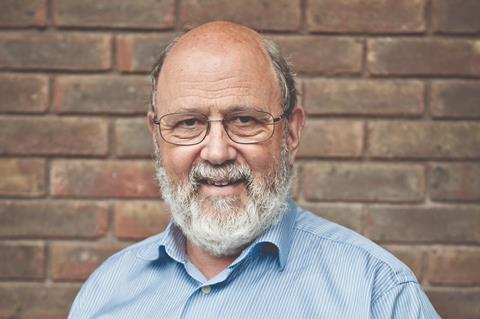The Bible scholar gives his answer

Q: In the Lord’s Prayer, Jesus appears to guide us to direct our prayers to the Father. However, I often hear Christians praying directly to Jesus. Is this wrong? Is it a misunderstanding of the Trinity?
The great Christian tradition in prayer has usually followed the theological view that we pray “to the Father, through the Son, in the power of the Spirit”. It’s a helpful formula, and there is a kind of logic to it. However, the logic seems to disappear fairly soon as we see various instances of people praying directly to Jesus, not just to the Father, in the New Testament.
For example, some early Christians, including Paul, invoke Jesus as Lord and pray to him that he will come again (see 1 Corinthians 1:1–3; 2 Corinthians 12:8; Thessalonians 3:11–14). Likewise, Revelation 22:17: “The Spirit and the bride say, ‘Come!’”, is a prayer to Jesus that he will return.
Often, simply calling upon Jesus as Lord is a form of prayer, such as when Peter is sinking in the water and he says: “Lord, save me” (Matthew 14:30). From very early on in Church history, that was interpreted as a prayer to Jesus, addressed as Kyrios, which in Greek can just mean “Master” or “Sir” but is also the word which, in the Old Testament, translates to the personal name of God, Yahweh.
The question of the Trinity is also significant when it comes to prayer. In Romans 8:26-27 it says: “the Spirit himself intercedes for us through wordless groans”. Astonishingly, this means we are somehow caught up as part of God’s triune life when we pray. Especially in Eastern Christianity, prayer is about being part of the inner life of God. Out of that tradition comes the so-called ‘Jesus Prayer’: “Lord Jesus Christ, Son of the living God, have mercy on me, a sinner.”
I know some Christians will insist that we really should be praying to the Father, but I know people who have used that Jesus Prayer a great deal. I think of the late Bishop Simon Barrington-Ward, a wonderful, deeply spiritual man. Simon practised the Jesus Prayer daily. There was a sense of stillness, wisdom, happiness and glory about him. That Jesus Prayer was not praying to Jesus over and against praying to the Father. It was a way of praying through Jesus, in the power of the Holy Spirit and in the presence of the Father.

So, I don’t think we should be too fussy about whether we get our Trinitarian theology right in prayer. The important thing is to pray! Prayer is absolutely central to the Christian life and, in the end, we have to accept that there is a deep mystery at play whenever we engage with it.
Tom answers listeners’ questions every week on the ‘Ask NT Wright Anything’ podcast.





































1 Reader's comment